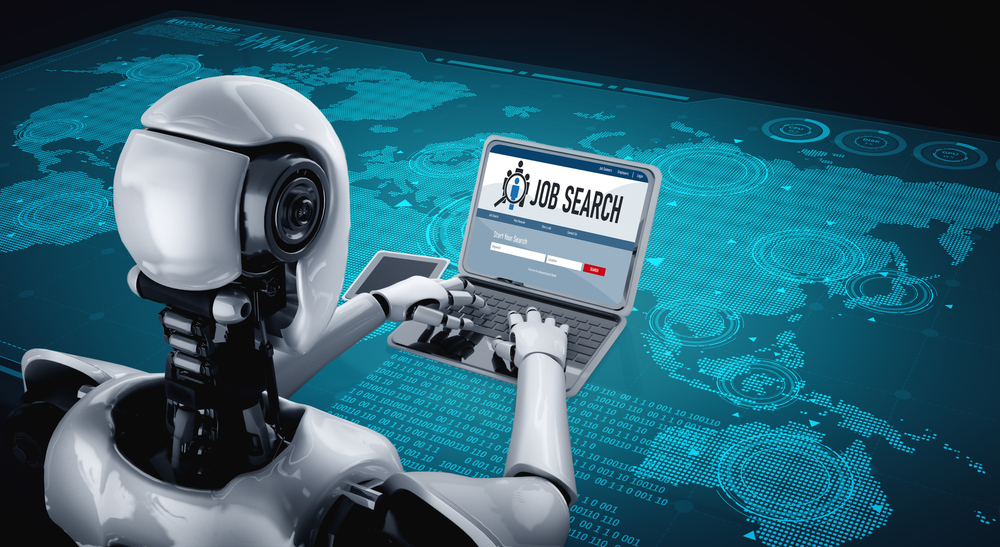
Is artificial intelligence about to steal your job? [Q&A]
With artificial intelligence becoming more powerful and completing more complex tasks, the natural question being asked in the industry is if and when AI will steal human jobs.
Myths abound about AI working autonomously and eliminating the human workforce, starting with entry-level jobs. In reality, however, AI makes workers better and it works best when paired with humans -- their strategic thinking, specialized judgment, and adaptability remain irreplaceable.

AI assistance delivers gains for SOC analysts
Security Operations Centers are inundated with thousands of alerts each day, most of which are false positives or low-severity issues. This flood of noise leads to alert fatigue, forcing SOC analysts to waste valuable time on false alarms instead of focusing on genuine threats.
A new study from Dropzone AI looking at SOC analyst performance across 148 security analysts shows that AI can improve effectiveness. AI assisted investigations were 22–29 percent more accurate than those in the unassisted control group.

Only 11 percent of US consumers trust their first search result
According to a survey of over 1,000 US consumers conducted on behalf of brand visibility platform Yext, just 11 percent trust the first tool they use when searching online, meaning nearly nine out of 10 double-check or expand their results elsewhere.
The research suggests the age of one-stop search and shop is ending and Americans are increasingly blending traditional search engines with AI tools, social media, and review sites to make purchase decisions.

Most big US companies now flag AI use in their public risk disclosures
A new report from The Conference Board and ESGAUGE finds that 72 percent of S&P 500 companies now flag AI as a material risk in their public disclosures. That’s up from just 12 percent in 2023, underscoring how rapidly AI has moved from experimental pilots to business-critical system.
Reputational risk tops the list, cited by 38 percent of companies. Firms warn that failed AI projects, missteps in consumer-facing tools, or breakdowns in service could quickly erode brand trust. Cybersecurity risks follow, disclosed by 20 percent of firms.

Google builds new AI agent to improve code security
Google has released information on a new AI-powered agent that automatically improves code security by fixing critical software vulnerabilities.
CodeMender has been built over the past six months and the company has already upstreamed 72 security fixes to open source projects, including some as large as 4.5 million lines of code.

Why data lineage is a business strategy, not a technical feature [Q&A]
Modern enterprises are more than ever reliant on data. But that makes understanding how that data is generated, transmitted, changed and used over time -- its lineage, vitally important.
We spoke to Saurabh Gupta, chief of strategy, revenue and growth at The Modern Data Company, to discuss how proactive, context-rich systems of record enable organizations to accelerate, maintain trust, and strategically utilize data.

41 percent of schools suffer AI-related cyber incidents
A new survey of more than 1,400 education leaders across primary, secondary and higher education in the UK and US finds that while AI is already integrated into classrooms and faculty work, development of policies and protections needed to manage new risks in schools is lagging.
The study from Keeper Security shows 41 percent of schools have experienced AI-related cyber incidents, including phishing campaigns and misinformation, while nearly 30 percent reported instances of harmful AI content, such as deepfakes created by students.

The rise of the ‘bionic hacker’ -- AI’s impact on attack and defense
The rapid adoption of artificial intelligence (AI) is transforming both attack and defense according to a report released today by crowdsourced security platform HackerOne.
It finds that organizations have expanded their AI program adoption by 270 percent this year, while HackerOne’s platform reported a 540 percent surge in prompt injection vulnerabilities to make them the fastest-growing threat in AI security.

AI use increases alongside plummeting consumer trust
A new report from Ping Identity finds that 68 percent of consumers are now using AI, up from 41 percent a year ago. But at the same time fewer than one in five (17 percent) say they have ‘full trust’ in the organizations that manage their identity data.
The findings of the study, carried out by Talker Research which interviewed 10,500 consumers across 11 countries, show that 75 percent say they are more concerned about personal data security than five years ago. In addition 39 percent cite AI-driven phishing as the modern scam that concerns them most.

AI reshapes managed security services but it’s a double-edged sword
A new survey from OpenText Cybersecurity reveals that MSPs find AI as both a driver of growth and source of new challenges as as demand for scalable, integrated tools continues to rise.
In 2024, 93 percent of MSPs and managed security service providers (MSSPs) said AI interest would drive growth in their business that year. That trend has carried forward to this year, with 92 percent of MSPs now reporting business growth driven by interest in AI, and 96 percent expecting AI to drive business growth this year.

The social media apps harvesting your data for AI
We all know that data is a valuable commodity, whether it’s to build marketing profiles or target advertising. Increasingly it’s also being used to train AI models, but do you know what the sites you use are doing with your information?
Data privacy and removal company Incogni has released its Social Media Privacy Ranking 2025 report, which ranks major social media platforms on user privacy, compliance, and overall data protection practices.

Skeptic or realist? The contradictions in AI technology adoption
Research released today by The Adaptavist Group reveals deep-rooted contradictions in how companies are approaching and implementing AI technology.
The survey of 900 professionals responsible for introducing and onboarding AI across the UK, US, Canada, and Germany uncovers a major fault line between the 42 percent who believe their company’s AI claims are over-inflated -- the AI ‘skeptics’ -- and the 36 percent of AI ‘realists’ who do not.

Two-thirds of people working with AI are not in tech roles
We tend to think of artificial intelligence as being at the cutting edge of technical development, but new analysis from Multiverse shows that over two-thirds of people using AI at work in the UK are in roles not traditionally associated with tech.
The analysis of over 2,500 people on Multiverse’s AI apprenticeship programs reveals that over two-thirds (67 percent) are in non-tech roles -- that is, roles whose job titles don’t include keywords related to tech, data and AI. Instead, among the 50 most common ‘invisible’ roles are frontline public service, education, healthcare and construction roles, including nurses, doctors, librarians, pharmacists, therapists, lecturers and surveyors.

AI is an even playing field -- how secure by design can tip the scale [Q&A]
Vibe coding is currently all the rage, with more than 97 percent of respondents to a survey earlier this year reporting having used AI coding tools at work.
The adoption of these tools only continues to grow but it comes with a catch, attackers are also employing the same techniques. We spoke to Pieter Danhieux, co-founder and CEO of Secure Code Warrior, to discuss how vibe coding is redefining the software development landscape, how malicious actors are also leveraging this technology and the need for organizations to implement secure by design strategies from the outset.

AI investment soars but only a tenth of projects are fully deployed
New research reveals that while organizations have nearly doubled their overall AI investment to $27 million (up from $14.7 million in 2024) and 87 percent report that the ROI on their AIOps initiatives has met or exceeded expectations, however, only 12 percent of AI projects have reached full enterprise-wide deployment.
The survey, of 1,200 business decision-makers, IT leaders, and technical specialists, from Riverbed shows organizations report facing several significant barriers to AI implementation. The majority are not fully prepared to roll out AI projects, with challenges including persistent issues with data quality and a gap between leadership optimism and the technical realities of implementation.
